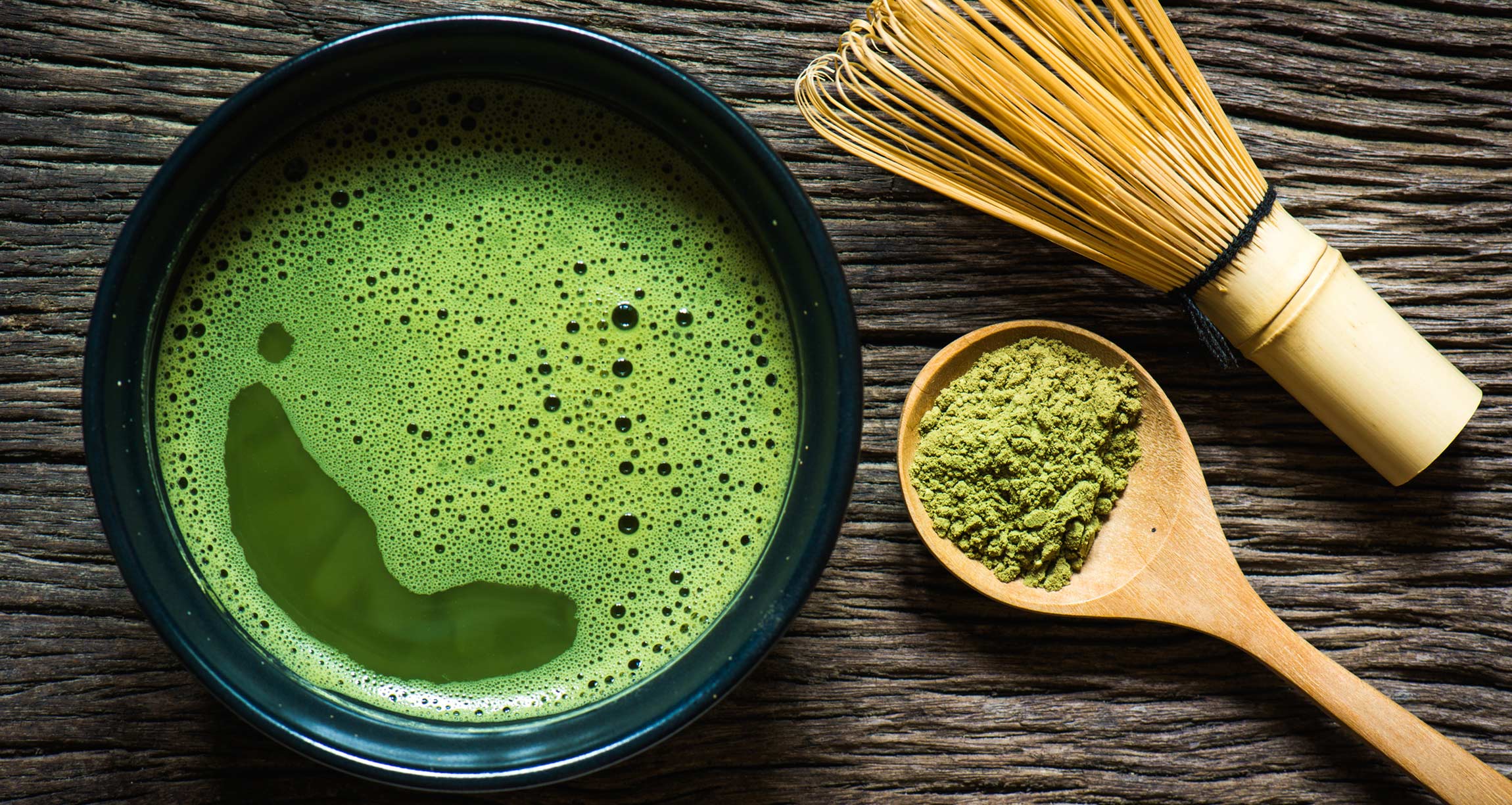Edited by Ocean Robbins • A version of this article was originally published on Pique Tea.
Drinking Matcha Across History
Matcha tea comes from the same plant that originates all green, white, and black teas: the camellia sinensis bush. The name “matcha” literally means “powdered tea.”
The process of turning tea leaves into a powder is not new. Matcha was the primary way to consume tea in China during the Tang Dynasty (600-900 AD).
In the 1100s, a huge transfer of knowledge and culture from China to Japan occurred, and that’s how matcha made its way across the ocean. Matcha and Zen Buddhism flourished together, and the two were often considered inseparable.
By the 1500s, matcha took hold as part of the formal Japanese tea ceremony, which celebrated stillness and simplicity. It grew in popularity in Japan, even as it lost its appeal in China.
How Is Matcha Tea Different from Regular Green Tea?
We know tea may be the world’s healthiest beverage — and green tea seems to be the most healthful of all. But what makes matcha special?
The matcha process begins while the green tea leaves are still growing. The plants are shaded before harvesting to increase chlorophyll and amino acid content (particularly L-theanine) and to improve the appearance and flavor of the tea. This gives matcha powder its brilliant green color.
Once the leaves are harvested, steamed, dried, and blended, they are ground up into a fine powder that you mix into hot or cold water.
The result? You’re actually drinking the entire tea leaf! With traditional green tea, in comparison, you’re only drinking the dissolvable elements that the leaves infuse into the water.
So matcha powder can give you the health benefits of green tea, and then some! In fact, a cup of matcha tea has about three times the antioxidants of regular green tea.
What Does Matcha Taste Like?
Most people find typical matcha teas have a strong, grassy flavor — similar to wheatgrass or even spinach.
But premium matcha teas have balanced flavors, with layers of unfolding creaminess, umami, fresh-cut grass, and roasted notes.
What Are the Health Benefits of Matcha Tea?
Here are five science-backed benefits that explain what matcha is good for:
1. Supports Heart Health
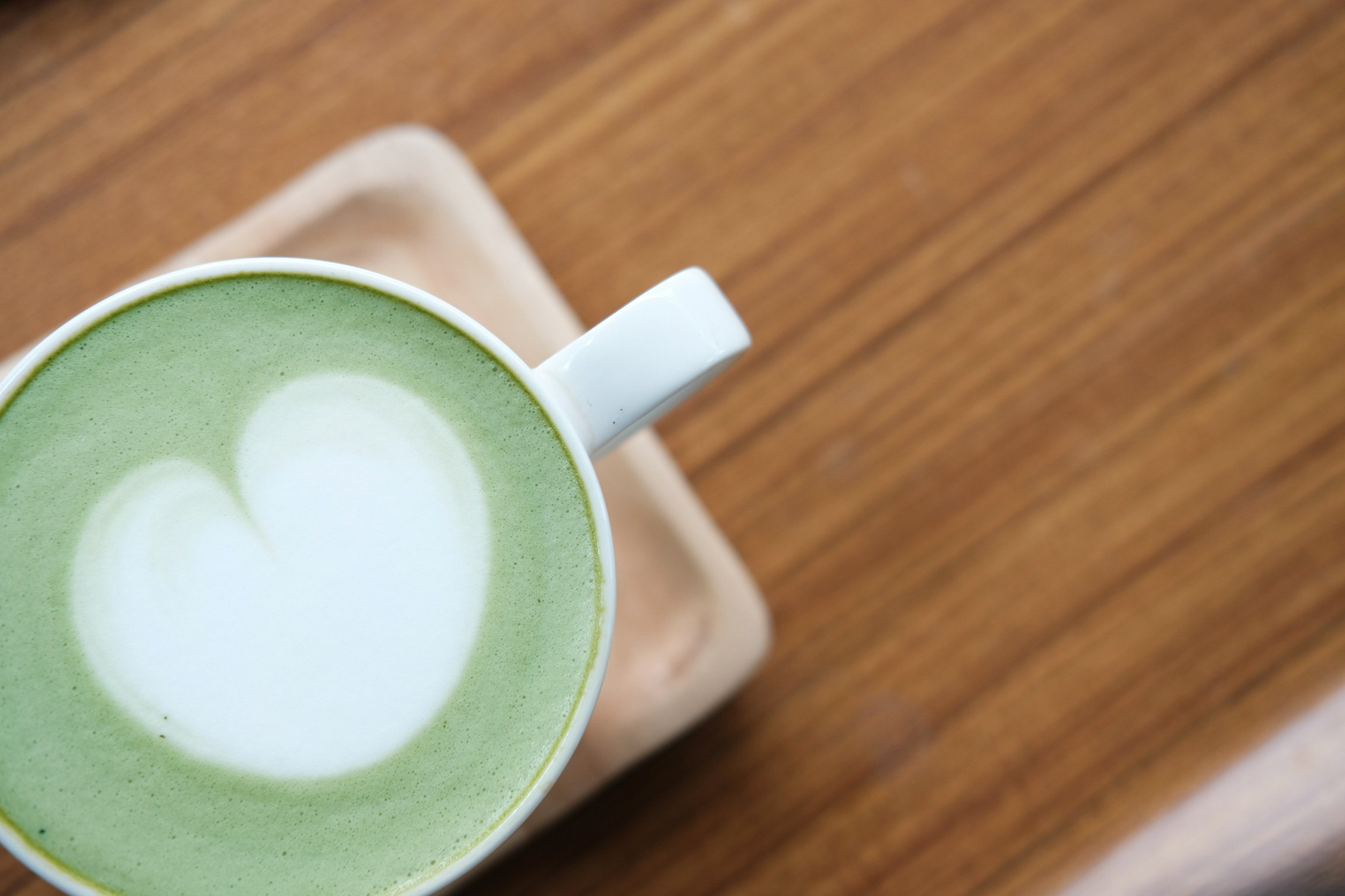
Green tea catechins may support a healthy cardiovascular system. And matcha is the most potent type of green tea when it comes to catechin content.
So where’s the evidence for this?
- A 2001 study published in The American Journal of Clinical Nutrition found that “Catechins, whether from tea or other sources, may reduce the risk of ischemic heart disease mortality but not of stroke.”
-
A meta-analysis of studies on catechins and stroke, published in 2009 in Stroke, however, concluded that “Although a randomized clinical trial would be necessary to confirm the effect… daily consumption of either green or black tea equaling 3 cups per day could prevent the onset of ischemic stroke.”
Not only that, a comprehensive analysis published in the American Journal of Clinical Nutrition in 2011 found that “the administration of green tea beverages or extracts resulted in significant reductions in serum TC and LDL-cholesterol concentrations.” No effect on HDL cholesterol levels was observed.
Plus the powerful antioxidants found in green tea, especially EGCG, have shown to be helpful in supporting healthy arteries.
2. Supports Healthy Cells and Skin
Animal studies suggest that drinking matcha regularly may support your body’s natural antioxidant defense system.
This has implications for healthy aging, plus it’s excellent news for supporting a stronger immune system!
Benefits of matcha green tea on skin also include protection against UV damage. And its anti-inflammatory nature may help protect your skin from certain conditions like rosacea.
3. Supports Brain Health
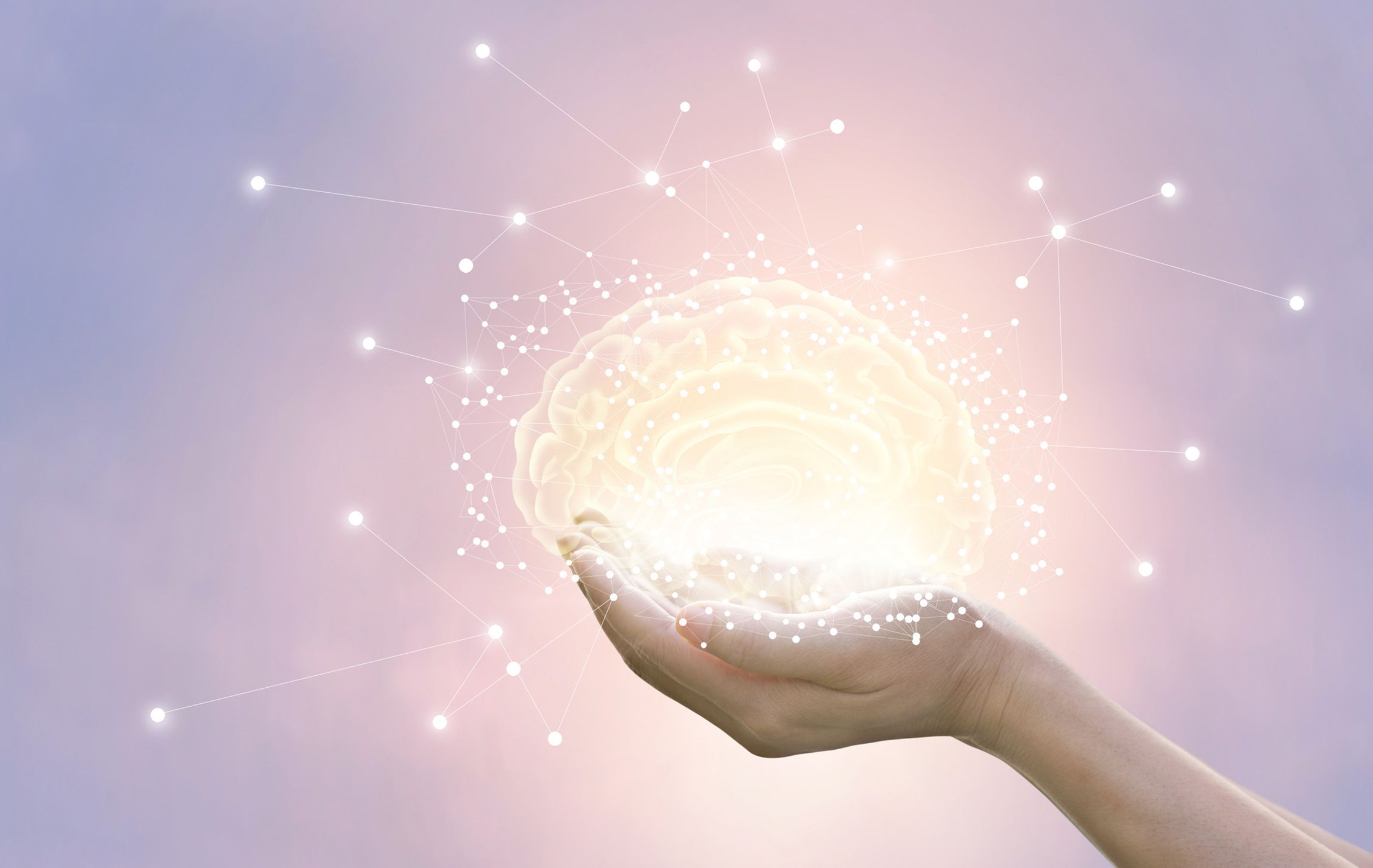
Studies show that consuming matcha can help support healthy cognitive function.
Researchers in a 2014 study published in the journal Nutrients tracked 12 elderly nursing home residents with cognitive dysfunction. They concluded that green tea consumption (in this case, 2 grams of green tea powder — matcha — consumed daily for three months) may be effective in supporting cognitive function, including during aging.
Another 2017 paper published in Food Research International was based on research in healthy adults. The study found that those who consumed matcha exhibited improved performance, suggesting tea may support healthy brain function in young, healthy people as well.
4. Supports Healthy Metabolism
It turns out that matcha may help support a healthy body weight by supporting a healthy metabolism and fat-burning.
In one fascinating 2005 study published in the American Journal of Clinical Nutrition, researchers found that regularly drinking matcha can support elevated thermogenesis (the rate at which you burn calories). The researchers concluded that “Body weight, BMI, waist circumference, body fat mass, and subcutaneous fat area were significantly lower in the green tea extract group than in the control group.”
In a 2018 study published in Human Kinetics, women drank a cup of matcha before a 30-minute brisk walk. Scientists learned that consuming the matcha supported fat-burning during the walk.
5. Supports Mood and Mental Focus

Matcha is rich in amino acids (the building blocks of protein) compared to other teas. And it turns out to be the very highest in one of the most prized amino acids, L-theanine.
What does L-theanine do for you? It can support a calm and meditative state that’s perfect for deep focus.
The effect of drinking matcha is commonly described as “relaxed alertness” or “meditation in a cup” because caffeine helps the mind focus and stay alert, while L-theanine helps it relax.
L-theanine is also why the caffeine in tea may not give you the same jitters as the caffeine in coffee does. It acts as a complement to caffeine, balancing the jitters or anxiety you might typically feel, while still providing you with calm energy.
While all green tea contains L-theanine, the levels found in matcha are unmatched. Most green teas have four milligrams of L-theanine per serving, but matcha tea has 20 milligrams!
Fun fact: One of the earliest uses of matcha was as an aid to the meditation practice of Japanese monks. Drinking matcha would help them sit alert and calm for hours on end.
Even if you’re not big on meditating, most of us could do with a little more calm alertness.
Does Matcha Tea Quality Matter?
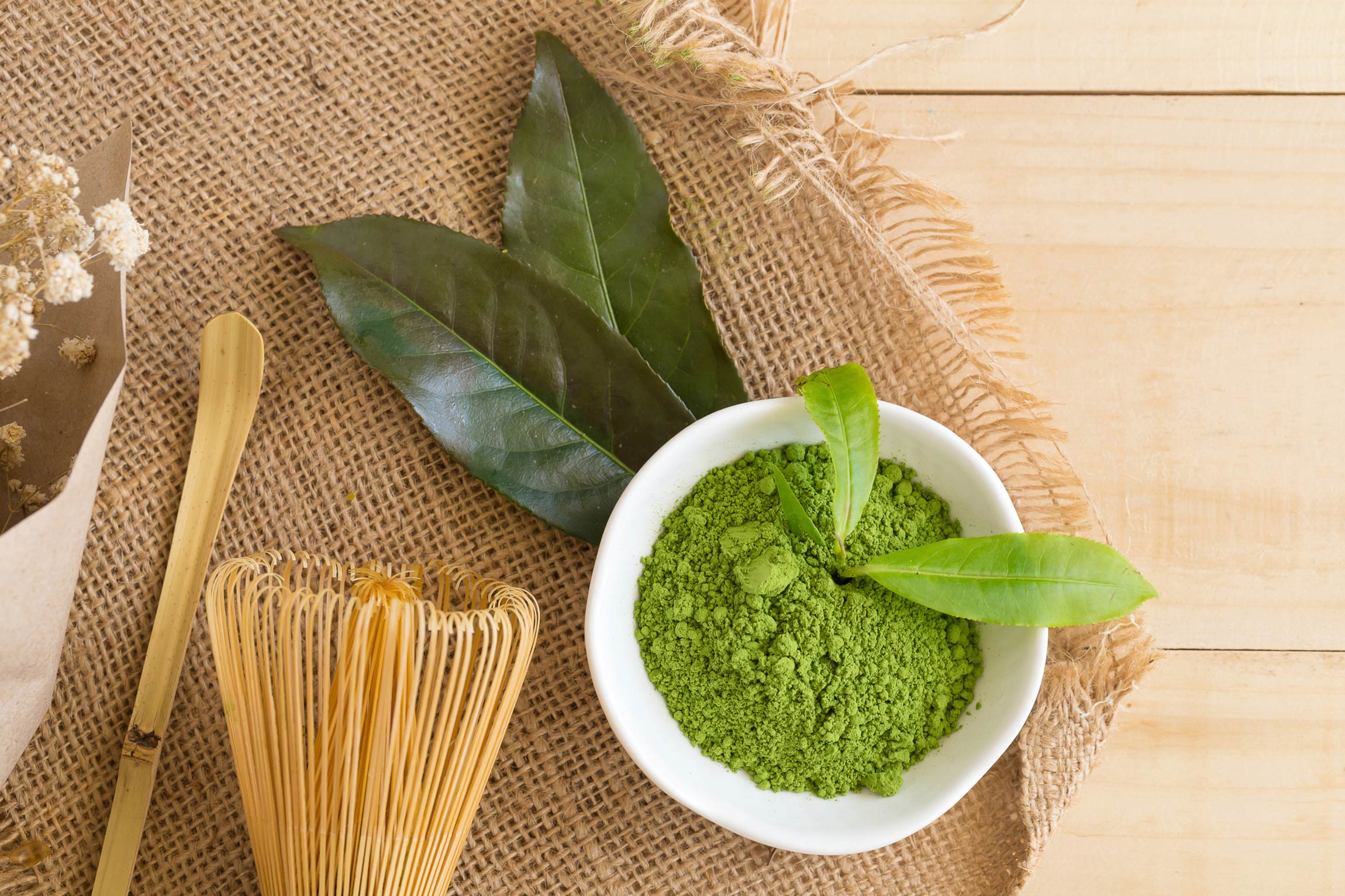
In a word….YES!
Here are five tangible benefits of high-quality matcha teas:
- Traditionally, the holy grail for great matcha is umami flavor. Umami flavor comes from the high amino acid content. So if you’re tasting a lot of umami — the savory flavor of foods such as miso, shiitake mushrooms, and the highest quality soy sauces — you’re probably getting a potent dose of amino acids, including calming L-theanine. Highly regarded tea cultivators use a specific method for increasing umami: They shade the tea leaves before harvest to prevent photosynthesis while overfeeding the plants with nutrients. This enables tea plants to produce and keep a higher level of amino acids, which increases umami flavor.
- The best matcha teas come from the first “flush” or the first pick of leaves in the year during the spring. This is when plants have been resting all winter and produce the most nutrient-dense and flavorful leaves filled with chlorophyll, L-theanine, and catechins. Lower-grade matcha teas are harvested in the summer and fall when plants are fatigued and leaves are less nutrient-dense.
- Higher quality matcha is grown with fewer pesticides and fertilizers, even if they are not organic. (Of course, it’s best to go organic, too!) The last thing you want is to increase your exposure to toxins when you drink something you hope could benefit your health.
- Better grinding techniques used to produce high-quality matcha generate less heat, which preserves more nutrients and antioxidants.
- Higher quality matcha teas also just taste better — they are less bitter and grassy. And if you enjoy the taste of something, you’re more likely to keep drinking it regularly, right?
Because of the way leaves are grown, shaded, harvested, and processed, the price of matcha reflects the quality. After all, the harvest of high-quality matcha takes place only once each year.
So if you find inexpensive matcha, there’s a good chance that the leaves are of a lesser quality without proper processing — which means fewer health benefits. That doesn’t mean it’s not a good thing. But matcha is one of those things where, more often than not, you get what you pay for.
3 Ways to Choose A Good Matcha Tea
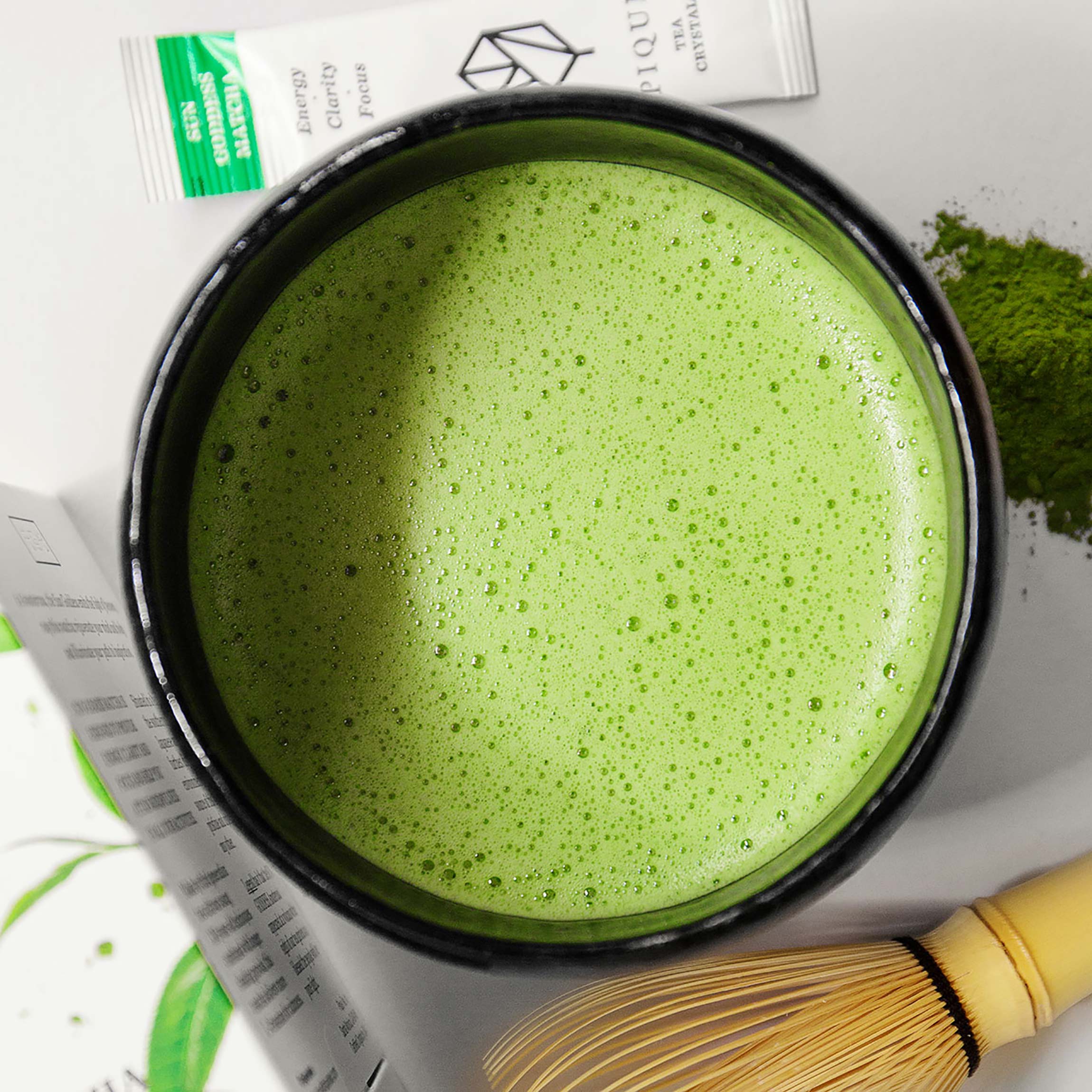
How do you decide which matcha tea is a good one to choose?
There are three main ways you can judge a matcha’s quality:
- Flavor — Due to the umami flavor (discussed above), quality matcha teas will have a harmony of creamy, savory, grassy, and roasted flavors.
- Color — What you want is a beautiful bright and vibrant green. If your matcha is on the yellow side, that means it’s of a lesser quality and comes from leaves harvested later in the year instead of during the spring.
- The Appearance of Froth — The traditional method of drinking matcha involves whisking it with a bamboo whisk to create a frothy foam. If the bubbles are large and irregular, this means the matcha powder is coarsely ground and of lesser quality. The highest quality matcha, on the other hand, is finely ground and creates foam made of tiny, uniform bubbles when whisked with skill.
How to Make a Matcha Latte
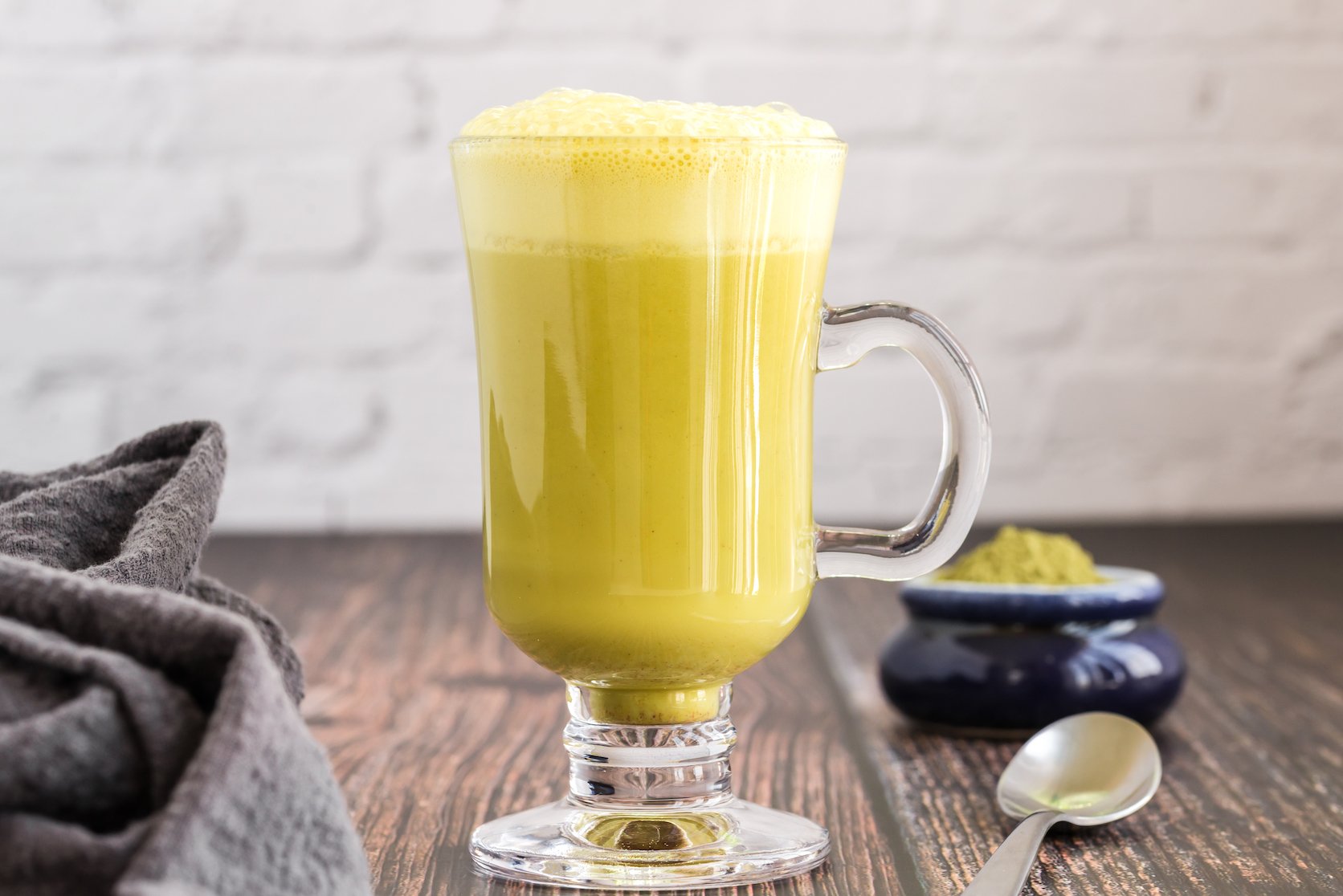
Try this matcha green tea latte and enjoy the many health benefits of matcha during your day.
Soothing Spiced Matcha Tea Latte
Keep calm and drink matcha! With this matcha tea latte recipe, you can reap the benefits of both matcha and anti-inflammatory superstar, turmeric.
When Should You Drink Matcha?
There are many benefits of drinking matcha green tea every day, but what’s the best time of day to drink it? Due to its caffeine content, morning or afternoon is the best time to consume matcha.
Although matcha has many benefits, it can also have side effects for some people.
People with sensitive stomachs may experience side effects such as discomfort when drinking the tea on an empty stomach due to its tannin content. (Tannins are bitter-tasting but harmless chemicals that occur naturally in tea and wine.)
If you are one of these people, you might have better results if you wait until after you’ve had breakfast or lunch to drink your matcha.
Final Word: Should You Try Matcha Tea?
No food or beverage, no matter how many benefits medical studies may find, is right for everyone at all times. Matcha contains caffeine, and not everyone responds well to caffeine. If you find that it doesn’t work for you — no problem. You’ll find some other fabulous, health-boosting beverages, here.
But for many people, quality matcha is worth a try. You can take a little time out of your day to savor the experience and let yourself bask in the rich flavors and calming energy it brings.
After all, we can all enjoy a little bliss now and then.
Editor’s note: Want An Excellent Matcha Tea? Check This Out
Do you want to drink matcha tea? As you’ve seen above, selecting a high-quality brand is important — like Pique Tea’s Sun Goddess Matcha.
Why is this organically grown matcha tea excellent? It starts with its source. This matcha comes from Kagoshima, the furthest point from industrial pollution and radiation in Japan — and also neighbor to Okinawa, a Blue Zone where natives enjoy the longest lives in the world!
And then, the company quadruple screens for heavy metals and toxins, pesticides, mold, and radioactive isotopes — harmful things you definitely don’t want to be drinking in a healthy beverage!
This matcha tea also maximizes its health benefits because the tea leaves are shaded 35% longer to produce more amino acids, including L-theanine.
Not to mention, it has an incredible, creamy, umami flavor that is quite delightful — and is also award-winning.
Learn more about Pique Tea’s high-quality, organic, pure matcha tea, here now.
(If you make a purchase using this link, Pique will make a contribution to Food Revolution Network. Thanks for your support!)
Tell us in the comments:
- Do you drink matcha tea? What kinds do you enjoy?
- Have you noticed any health benefits from drinking tea?
- Have you ever enjoyed a matcha ritual?
